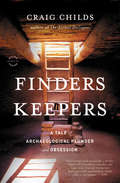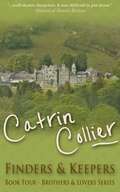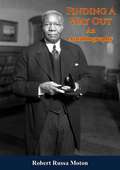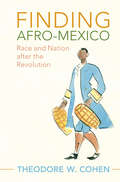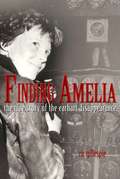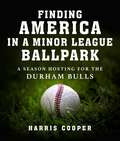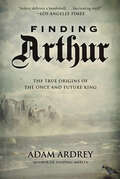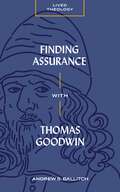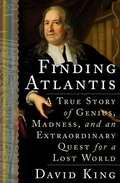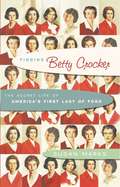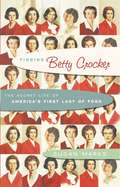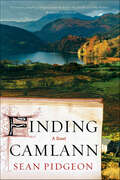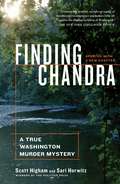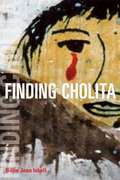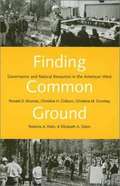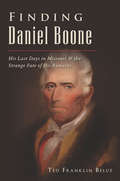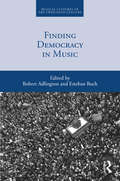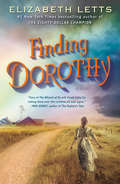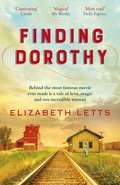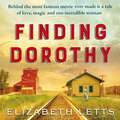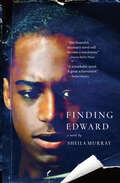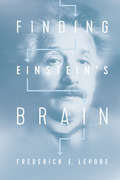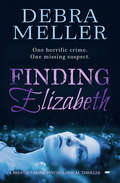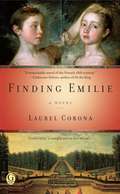- Table View
- List View
Finders Keepers: A Tale of Archaeological Plunder and Obsession
by Craig ChildsBeyond what most people think about archaeology--with its cleanly numbered dates, and discoveries--lies a vibrant and controversial realm of scientists, thieves, and contested land claims.  Now, in TRESPASS, Childs explores the field's transgressions against the cultures it tries to preserve and pauses to ask: To whom does the past belong? Written in his trademark lyrical style, this riveting book carries readers directly into his adventures and discoveries, lifting the curtain on the ethical dilemmas and dark side of archaeology. It is a book about man and nature, remnants and memory, a dashing tale of crime and detection. In other words, this is a ghost story.
Finders and Keepers
by Catrin CollierThe first instalment of Catrin Collier's The Tsar's Dragons tells the epic historical saga based on the true story of how John Hughes, a lowborn, illiterate Welshman, founded Russia's iron industry on the steppes of the Ukraine. In 1869 John Hughes travelled to Russia at the invitation of Tsar Alexander II to build an ironworks and instigate the industrialization of Russia. Not everyone welcomes John and the Tsar's plans. Necessity forces Count Nicholas Beletsky to sell John land, although he abhors 'dirty' industry and is furious when son Alexei reveals his ambition to become an engineer. The Jews, who live apart in their shtetl, refuse to believe that John's plans will halt the persecution of their race. The Cossacks in the village of Alexandrovka, soon to be swallowed by John's new town, queue to sell John their land and coal mines that have been worked in the same primitive fashion or centuries. Undeterred, John signs up workers in Wales, but not all leave in search of fortune. Some, like brother and sister Richard and Anna Parry, are running to escape violence. Will they, and John's right-hand man Glyn, find the peace they search for in John's visionary new town?
Finding A Way Out: An Autobiography
by Robert Russa MotonFrom slave to successor to Booker T. Washington as head of the Tuskegee Institute is a personal story of an African-American and his struggles during the Ante-Bellum years.Robert Russa Moton was born in Amelia County, Virginia, on August 26, 1867, and was raised in nearby Rice, Prince Edward County, Virginia. He was the grandson of an African chieftain who had grown wealthy by engaging in slave trading. Later this chief was himself sold into slavery, leading to the establishment of Moton's family in the Americas shortly thereafter.In 1915, after the death of Booker T. Washington, Moton succeeded Washington as the second principal of the Tuskegee Institute. While supporting the work-study program, he emphasized education, integrating liberal arts into the curriculum, establishing bachelor of science degrees in agriculture and education. He improved courses of study, especially in teacher training, elevated the quality of the faculty and administration, constructed new facilities, and significantly increased the endowment by maintaining his connections to wealthy white benefactors in the North.
Finding Afro-Mexico: Race and Nation after the Revolution (Afro-Latin America)
by Theodore W. CohenIn 2015, the Mexican state counted how many of its citizens identified as Afro-Mexican for the first time since independence. Finding Afro-Mexico reveals the transnational interdisciplinary histories that led to this celebrated reformulation of Mexican national identity. It traces the Mexican, African American, and Cuban writers, poets, anthropologists, artists, composers, historians, and archaeologists who integrated Mexican history, culture, and society into the African Diaspora after the Revolution of 1910. Theodore W. Cohen persuasively shows how these intellectuals rejected the nineteenth-century racial paradigms that heralded black disappearance when they made blackness visible first in Mexican culture and then in post-revolutionary society. Drawing from more than twenty different archives across the Americas, this cultural and intellectual history of black visibility, invisibility, and community-formation questions the racial, cultural, and political dimensions of Mexican history and Afro-diasporic thought.
Finding Amelia
by Ric GillespieIn the seventy years since the disappearance of Amelia Earhart and her navigator Fred Noonan during a flight over the Central Pacific, their fate has remained one of history's most debated mysteries. Dozens of books have offered a variety of solutions to the puzzle, but they all draw on the same handful of documents and conflicting eyewitness accounts.Now a wealth of new information uncovered by the International Group for Historic Aircraft Recovery (TIGHAR) allows this book to offer the first fully documented history of what happened. Scrupulously accurate and thrilling to read, it tells the story from the letters, logs, and telegrams that recorded events as they unfolded. Many long-accepted facts are revealed as myths.Author Ric Gillespie, TIGHAR's executive director, draws on the work of his organization's historians, archæologists, and scientists, who compiled and analyzed more than five thousand documents relating to the Earhart case. Their research led to the hypothesis that Earhart and Noonan died as castaways on a remote Pacific atoll. But this book is not a polemic that argues for a particular theory. Rather, it presents all of the authenticated historical dots and leaves it to the reader to make the connections. In addition to details about the Earhart's career and final flight, the book examines her relationship with the U.S. government and the massive search undertaken by the U.S. Coast Guard and Navy.
Finding America in a Minor League Ballpark: A Season Hosting for the Durham Bulls
by Harris CooperOver forty million people attend minor league baseball games each season. Who are they? Why do they come? Let&’s find out! Noted social scientist Harris Cooper took a job as a Seating Bowl Host for the most famous minor league baseball team, the Durham Bulls. As a host, he helped fans find seats and other stadium amenities, made sure everyone was safe, took pictures, and chased kids from the aisles. He got to talk with a wide-ranging assortment of people, from regular attendees to those at their very first baseball game, from retired judges to middle school students. Minor league baseball games draw a broader array of Americans than any sport. The fleeting moments spent talking baseball with the fan sitting next to you or with a ballpark employee disguise the remarkable variety of people who call themselves &“baseball fans.&” Dr. Cooper brings these people to life. In addition, the book presents a brief history of minor league baseball, the Bulls, and the city of Durham, so typical of small American cities. It profiles the ballplayers, focusing not on their on-field statistics but on who they are and where they come from. The book also profiles twelve baseball movies, all of which focus on baseball not played in the major leagues. Throughout the book, Dr. Cooper draws on his knowledge of social science to extract from his experiences a description of the inhabitants and goings-on at a ballpark. It illuminates not just baseball writ large, but also provides a compelling portrait of Americans as a people and their shared love of our national pastime.
Finding Arthur: The True Origins of the Once and Future King
by Adam ArdreyThe legend of King Arthur has been told and retold for centuries. As the kind who united a nation, his is the story of England itself. But what if Arur wasn't English at all? As writer and Arthurian scholar Adam Ardrey discovered, the reason historians have had little success identifying the historical Arthur may be increcidbly simple: He wasn't an Englishman. He was from Scotland and many of the familiar symbols of Arthurian legend--the Round Table, the Sword in the Stone, and the Lady of the Lake--are based on very real and still accessible places in the Scottish Highlands.
Finding Assurance with Thomas Goodwin (Lived Theology)
by Andrew S. BallitchGlory in nothing but that you are in Christ In Finding Assurance with Thomas Goodwin, Andrew S. Ballitch explores how deeply the doctrine of assurance of faith impacted Goodwin's life and how Christians can learn from him today. Doubt is a common Christian experience, and assurance of faith is a universal Christian desire. The Puritans were acutely aware of this reality—none more than Thomas Goodwin (1600–1680). Goodwin wrestled with doubt for seven years after his conversion. When assurance came, it was with joy and confidence that Christ was for him personally. His confidence fueled a life of holiness, service, and perseverance. Ballitch highlights how Goodwin's life informed his theology and vice versa, so that readers can experience for themselves the joys of assurance.
Finding Atlantis: A True Story of Genius, Madness, and an Extraordinary Quest for a Lost World
by David KingIn 1679, Renaissance man Olof Rudbeck stunned the world. He proposed that an ancient lost civilization once thrived in the far north of his native Sweden: the fabled Atlantis. Rudbeck would spend the last thirty years of his life hunting for the evidence that would prove this extraordinary theory. Chasing down clues to that lost golden age, Rudbeck combined the reasoning of Sherlock Holmes with the daring of Indiana Jones. He excavated what he thought was the acropolis of Atlantis, retraced the journeys of classical heroes, opened countless burial mounds, and consulted rich collections of manuscripts and artifacts. He eventually published his findings in a 2,500-page tome titled Atlantica, a remarkable work replete with heroic quests, exotic lands, and fabulous creatures. Three hundred years later, the story of Rudbeck's adventures appears in English for the first time. It is a thrilling narrative of discovery as well as a cautionary tale about the dangerous dance of genius and madness.
Finding Betty Crocker
by Susan MarksIN 1945, FORTUNE MAGAZINE named Betty Crocker the second most popular American woman, right behind Eleanor Roosevelt, and dubbed Betty America's First Lady of Food. Not bad for a gal who never actually existed. "Born" in 1921 in Minneapolis, Minnesota, to proud corporate parents, Betty Crocker has grown, over eight decades, into one of the most successful branding campaigns the world has ever known. Now, at long last, she has her own biography. Finding Betty Crocker draws on six years of research plus an unprecedented look into the General Mills archives to reveal how a fictitious spokesperson was enthusiastically welcomed into kitchens and shopping carts across the nation. The Washburn Crosby Company (one of the forerunners to General Mills) chose the cheery all-American "Betty" as a first name and paired it with Crocker, after William Crocker, a well-loved company director. Betty was to be the newest member of the Home Service Department, where she would be a "friend" to consumers in search of advice on baking -- and, in an unexpected twist, their personal lives. Soon Betty Crocker had her own national radio show, which, during the Great Depression and World War II, broadcast money-saving recipes, rationing tips, and messages of hope. Over 700,000 women joined Betty's wartime Home Legion program, while more than one million women -- and men -- registered for the Betty Crocker Cooking School of the Air during its twenty-seven-year run. At the height of Betty Crocker's popularity in the 1940s, she received as many as four to five thousand letters daily, care of General Mills. When her first full-scale cookbook, Betty Crocker's Picture Cook Book, or "Big Red," as it is affectionately known, was released in 1950, first-year sales rivaled those of the Bible. Today, over two hundred products bear her name, along with thousands of recipe booklets and cookbooks, an interactive website, and a newspaper column. What is it about Betty? In answering the question of why everyone was buying what she was selling, author Susan Marks offers an entertaining, charming, and utterly unique look -- through words and images -- at an American icon situated between profound symbolism and classic kitchen kitsch.
Finding Betty Crocker: The Secret Life of America's First Lady of Food
by Susan MarksIn 1945, Betty Crocker was bested only by Eleanor Roosevelt as the best-known woman in America. Originally published in hardcover by Simon and Schuster in 2005, this edition traces Betty Crocker's story from her "birth" in 1921, evolving brand persona, test kitchens, and connection to generations of American women in the context of societal trends. Marks, director of the documentary film The Betty Mystique, includes recipes and period illustrations. Annotation ©2007 Book News, Inc. , Portland, OR (booknews. com)
Finding Camlann: A Novel
by Sean PidgeonA compelling argument about the origins of King Arthur wrapped in a brilliant novel.Set against a rich historical landscape evoked by the secret places and half-forgotten legends of the British countryside, Finding Camlann is both a "fascinating mystery that will engage readers attracted by history, myth and language" (Washington Independent Review of Books) and a "beautifully written, intelligent, and ingenious" (Gillian Bradshaw) novel of how stories shape our notions of the past—and of ourselves.Archaeologist Donald Gladstone is sure that there never was a "real" King Arthur—that is, until a surprising find at Stonehenge seems to offer hard evidence of Arthur's existence. Teaming up with Julia Llewellyn, a gifted linguist working at the Oxford English Dictionary, Donald sets off on a literary and mythological quest that will change both of their lives. Gloriously many-layered, Finding Camlann is a deeply satisfying love story, a gripping detective story, and a narrative journey of myriad pleasures.
Finding Chandra
by Sari Horwitz Scott HighamIt was the mystery that gripped the nation during the summer of 2001: the sudden disappearance of Chandra Levy, a young, promising intern, and the possible involvement of Congressman Gary Condit. And then the case went cold. By 2007, satellite trucks and reporters had long since abandoned the story of the congressman and the intern in search of other news, fresh scandals. Across the country, Chandra's parents tried to resume their daily lives, desperately hoping that someday there might be a break in the investigation.And in Washington, the old game of who's up and who's down played on without interruption. But Chandra Levy haunted. Six years after the young intern's disappearance, investigative editors of the Washington Post pitched two Pulitzer Prize- winning reporters their idea: Revisit the unsolved case and find out what happened to Chandra, a task that had eluded police and the FBI. Scott Higham and Sari Horwitz went to work. e result was a thirteen-part series in the Washington Post that focused on a prime suspect the police and the FBI had passed over years before. They had wrongly pursued Condit and chased numerous false leads, including a claim that Chandra had been kidnapped and taken to the Middle East. But the most likely culprit was far less glamorous: an immigrant from El Salvador, a young man in the clutches of alcohol, drugs, and violence who had been stalking the running paths of Rock Creek Park, assaulting female joggers at knifepoint. He had attacked again, even as the police and the press concentrated on a congressman romantically linked to the intern. Finding Chandra explores the bungled police efforts to locate the crime scene and catch a killer, the ambition and hubris of Washington's power elite and press corps, the twisted culture of politics, the dark nature of political scandal, and the agony of parents struggling to comprehend the loss of a child. Above all, it is a quintessential portrait of a cast of outsiders who came to Washington with dreams of something better, only to be forever changed.
Finding Cholita
by Billie Jean IsbellFinding Cholita is fictionalized ethnography of the Ayacucho region of Peru covering a thirty-year period from the 1970s to today. It is a story of human tragedy resulting from the region's long history of discrimination, class oppression, and then the rise and fall of the communist organization Shining Path. The story's narrator, American anthropologist Dr. Alice Woodsley, attempts to locate her goddaughter, Cholita, who is known to have joined Shining Path and to have murdered her biological father, who fathered her through rape. Searching for Cholita, Woodsley devotes herself to documenting the stories of the countless Andean peasant women who were raped by soldiers, often going beyond witnessing as she helps the women relieve the pain of their sexual horror.
Finding Common Ground: Governance and Natural Resources in the American West
by Ronald D. Brunner Christine H. Colburn Christina M. Cromley Roberta A. KleinOver the past century, solutions to natural resources policy issues have become increasingly complex. Multiple government agencies with overlapping jurisdictions and differing mandates as well as multiple interest groups have contributed to gridlock, frequently preventing solutions in the common interest. Community-based responses to natural resource problems in the American West have demonstrated the potential of local initiatives both for finding common ground on divisive issues and for advancing the common interest. The first chapter of this enlightening book diagnoses contemporary problems of governance in natural resources policy and in the United States generally, then introduces community-based initiatives as responses to those problems. The next chapters examine the range of successes and failures of initiatives in water management in the Upper Clark Fork River in Montana; wolf recovery in the northern Rockies; bison management in greater Yellowstone; and forest policy in northern California. The concluding chapter considers how to harvest experience from these and other cases, offering practical suggestions for diverse participants in community-based initiatives and their supporters, agencies and interest groups, and researchers and educators.
Finding Daniel Boone: His Last Days in Missouri & the Strange Fate of His Remains (American Legends)
by Ted Franklin BelueFollow the final days of an American frontier icon as a historian examines what happened to him after he died.Finding Daniel Boone is a unique tribute to America’s frontier hero and offers closure to the greatest of all his mysteries: where he was buried. Part biography, part historical travelogue, and eloquently narrated using fresh sources, rare forensic data, and new field interviews, this is more than just a search for a man’s bones. Fully re-creating Daniel’s lost world, noted historian and author Ted Franklin Belue journeys along the famous Pathfinder’s last trail, from Missouri and back to Kentucky, meeting a host of colorful characters. As little has been written about Boone’s western days, where he lived the longest, this work examines the legendary woodsman’s life as much as his death.“With vivid writing, and ample historic documentation, Ted Franklin Belue invites readers on an incredible journey that introduces them to a new slant on an old story about one of the greatest American frontier heroes. Belue tirelessly re-creates Boone’s lost world and follows his last trail in the year of his death’s bicentennial, teasing us with a provocative question: Where does Daniel Boone rest, in Missouri or Kentucky?” —KYForward
Finding Democracy in Music (Musical Cultures of the Twentieth Century)
by Edited by Robert Adlington and Esteban BuchFor a century and more, the idea of democracy has fuelled musicians’ imaginations. Seeking to go beyond music’s proven capacity to contribute to specific political causes, musicians have explored how aspects of their practice embody democratic principles. This may involve adopting particular approaches to compositional material, performance practice, relationships to audiences, or modes of dissemination and distribution. Finding Democracy in Music is the first study to offer a wide-ranging investigation of ways in which democracy may thus be found in music. A guiding theme of the volume is that this takes place in a plurality of ways, depending upon the perspective taken to music’s manifold relationships, and the idea of democracy being entertained. Contributing authors explore various genres including orchestral composition, jazz, the post-war avant-garde, online performance, and contemporary popular music, as well as employing a wide array of theoretical, archival, and ethnographic methodologies. Particular attention is given to the contested nature of democracy as a category, and the gaps that frequently arise between utopian aspiration and reality. In so doing, the volume interrogates a key way in which music helps to articulate and shape our social lives and our politics.
Finding Dorothy: A Novel
by Elizabeth Letts<p>Hollywood, 1938: As soon as she learns that M-G-M is adapting her late husband’s masterpiece for the screen, seventy-seven-year-old Maud Gage Baum sets about trying to finagle her way onto the set. Nineteen years after Frank’s passing, Maud is the only person who can help the producers stay true to the spirit of the book—because she’s the only one left who knows its secrets. <p>But the moment she hears Judy Garland rehearsing the first notes of “Over the Rainbow,” Maud recognizes the yearning that defined her own life story, from her youth as a suffragette’s daughter to her coming of age as one of the first women in the Ivy League, from her blossoming romance with Frank to the hardscrabble prairie years that inspired The Wonderful Wizard of Oz. Judy reminds Maud of a young girl she cared for and tried to help in South Dakota, a dreamer who never got her happy ending. Now, with the young actress under pressure from the studio as well as her ambitious stage mother, Maud resolves to protect her—the way she tried so hard to protect the real Dorothy. <p>The author of two New York Times bestselling nonfiction books, The Eighty-Dollar Champion and The Perfect Horse, Elizabeth Letts is a master at discovering and researching a rich historical story and transforming it into a page-turner. Finding Dorothy is the result of Letts’s journey into the amazing lives of Frank and Maud Baum. Written as fiction but based closely on the truth, Elizabeth Letts’s new book tells a story of love, loss, inspiration, and perseverance, set in America’s heartland.</p>
Finding Dorothy: behind The Wizard of Oz is a story of love, magic and one incredible woman
by Elizabeth Letts'A captivating and insightful backstage pass into a timeless classic'CandisBehind the most famous movie ever made is a tale of love, magic and one incredible woman Hollywood, 1938: As soon as she learns that M-G-M is adapting her late husband's masterpiece, The Wonderful Wizard of Oz, for the screen, Maud Gage Baum sets about trying to visit the set.Nineteen years after Frank's passing, Maud is the only person who can help the producers stay true to the spirit of the book - because she's the only one left who knows its secrets...But the moment she hears Judy Garland rehearsing the first notes of 'Over the Rainbow', Maud recognizes the yearning that defined her own life story, from her rebellious youth as a suffragette's daughter to her coming of age as one of the first women in the Ivy League, from her blossoming romance with Frank to the hardscrabble prairie years that inspired his famous work. With the young actress under pressure from the studio as well as her ambitious stage mother, Maud resolves to protect her - the way she tried so hard to protect the real Dorothy.This richly imagined novel tells the story behind The Wonderful Wizard of Oz, the book that inspired the iconic film, through the eyes of author L. Frank Baum's intrepid wife, Maud.'Maud's life behind-the-scenes and the making of the film are uncovered in a thrilling, magical way'My Weekly
Finding Dorothy: behind The Wizard of Oz is a story of love, magic and one incredible woman
by Elizabeth LettsBehind the most famous movie ever made is a tale of love, magic and one incredible woman Hollywood, 1938: As soon as she learns that M-G-M is adapting her late husband's masterpiece, The Wonderful Wizard of Oz, for the screen, Maud Gage Baum sets about trying to visit the set.Nineteen years after Frank's passing, Maud is the only person who can help the producers stay true to the spirit of the book - because she's the only one left who knows its secrets...But the moment she hears Judy Garland rehearsing the first notes of 'Over the Rainbow', Maud recognizes the yearning that defined her own life story, from her rebellious youth as a suffragette's daughter to her coming of age as one of the first women in the Ivy League, from her blossoming romance with Frank to the hardscrabble prairie years that inspired his famous work. With the young actress under pressure from the studio as well as her ambitious stage mother, Maud resolves to protect her - the way she tried so hard to protect the real Dorothy.This richly imagined novel tells the story behind The Wonderful Wizard of Oz, the book that inspired the iconic film, through the eyes of author L. Frank Baum's intrepid wife, Maud.(P)2019 Random House Audio
Finding Edward
by Sheila MurrayCyril Rowntree migrates to Toronto from Jamaica in 2012. Managing a precarious balance of work and university he begins to navigate his way through the implications of being racialized in his challenging new land. A chance encounter with a panhandler named Patricia leads Cyril to a suitcase full of photographs and letters dating back to the early 1920s. Cyril is drawn into the letters and their story of a white mother’s struggle with the need to give up her mixed race baby, Edward. Abandoned by his own white father as a small child, Cyril’s keen intuition triggers a strong connection and he begins to look for the rest of Edward’s story. As he searches, Cyril unearths fragments of Edward’s itinerant life as he crisscrossed the country. Along the way, he discovers hidden pieces of Canada’s Black history and gains the confidence to take on his new world.
Finding Einstein's Brain
by Dr Frederick E. LeporeAlbert Einstein remains the quintessential icon of modern genius. Like Newton and many others, his seminal work in physics includes the General Theory of Relativity, the Absolute Nature of Light, and perhaps the most famous equation of all time: E=mc2. Following his death in 1955, Einstein’s brain was removed and preserved, but has never been fully or systematically studied. In fact, the sections are not even all in one place, and some are mysteriously unaccounted for! In this compelling tale, Frederick E. Lepore delves into the strange, elusive afterlife of Einstein’s brain, the controversy surrounding its use, and what its study represents for brain and/or intelligence studies. Carefully reacting to the skepticism of 21st century neuroscience, Lepore more broadly examines the philosophical, medical, and scientific implications of brain-examination. Is the brain simply a computer? If so, how close are we to artificially creating a human brain? Could scientists create a second Einstein? This “biography of a brain” attempts to answer these questions, exploring what made Einstein’s brain anatomy exceptional, and how “found” photographs--discovered more than a half a century after his death--may begin to uncover the nature of genius.
Finding Elizabeth: A Breath-Taking Psychological Thriller
by Debra MellerA detective and a criminal psychiatrist hunt for a missing maid who may be a murderer in this pulse-pounding historical thriller.In early twentieth-century England, a respectable factory owner fails to show up on a payday, and under pressure from the restless workers, the foreman visits the boss’s house to find out why. What lies within the lovely home is a chilling and bizarre crime scene. Sitting at a dining room table, as if enjoying their evening meal, are the decomposing bodies of an entire family—each one murdered and posed like mannequins.The only person missing from the disturbing scene is the family maid, Elizabeth.Detective Richard Crombie is assigned the case, but after weeks of work and no results, he reluctantly requests the help of criminal psychiatrist Doctor Killam, who once worked with Scotland Yard. While the detective and the doctor investigate the murders and hunt for the missing maid, it becomes apparent that they are up against a terrifying psychopath who has a thirst for death and no intention of stopping . . .
Finding Emilie
by Laurel CoronaWoman is born free, and everywhere she is in corsets. . . . Lili du Châtelet yearns to know more about her mother, the brilliant French mathematician Emilie. But the shrouded details of Emilie's unconventional life--and her sudden death--are elusive. Caught between the confines of a convent upbringing and the intrigues of the Versailles court, Lili blossoms under the care of a Parisian salonnière as she absorbs the excitement of the Enlightenment, even as the scandalous shadow of her mother's past haunts her and puts her on her own path of self-discovery. Laurel Corona's breathtaking new novel, set on the eve of the French Revolution, vividly illuminates the tensions of the times, and the dangerous dance between the need to conform and the desire to chart one's own destiny and journey of the heart.
